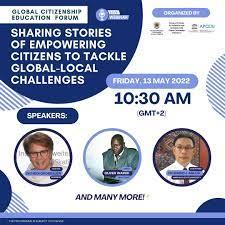
http://unescoapceiu.org/post/4448
This forum is part of APCEIU’s serial UNESCO Roundtable programme. The event offered a platform for GCED practitioners in Group of Friends Member States to share their experiences and inspire further GCED action across the UNESCO Member States. The event was conducted virtually and has gathered more than 90 participants from 29 countries.
The event began with the opening remarks from H.E. Mr Kim Dong Gi, Ambassador and Permanent Delegate of the Republic of Korea to UNESCO. During his speech, Ambassador Kim Dong Gi highlighted the importance of internalizing GCED to enhance learners’ awareness of their responsibility to contribute to protecting human rights and creating a peaceful and prosperous society.
Ms Stefania Giannini, Assistant Director-General for Education of UNESCO, built upon the remarks given by Ambassador Kim and underlined the criticality of transformative education for making positive peace. In particular, the continuous support targeting educators and youths is vital to ensure we can realize the transformation we want.
Following Ms Giannini’s welcoming remarks, the participants engaged in a series of presentations regarding programmes/activities implemented by GCED practitioners worldwide under the moderation of Mr Hyun Mook Lim, Director of APCEIU. The speakers included Ms Meri Mamikonyan from Armenia, Dr Heidi Grobbauer from Austria, Mr José Vicente Nieto Amaya from Colombia, Dr Enssaf Lutfi Al Zoubi from Jordan, Mr Oliver Waindi from Kenya, and Dr Mario Joyo Aguja from the Philippines. The presentations covered GCED programmes targeting youth, young girls and women, schools, universities, and local communities.
The Forum was concluded with the closing remarks from Mr Hyun Mook Lim. Mr Lim mentioned that from the presentations, we could see the power of education and GCED in tackling the most pressing challenges that we are experiencing in our local contexts. Moreover, he underlined the importance of having a critical point of view to analyze and understand the root causes of hindering peace, solidarity and cooperation while at the same time having positive mindsets and acting in accordance with our respective contexts.
A report on the forum can be found here.
The Asia-Pacific Centre of Education for International Understanding (APCEIU) promotes education for international understanding and global citizenship to build a culture of peace.
Mission
- Cultures of peace are based on respect for life, rejection of violence,--whether it be physical, psychological, structural, cultural, or ecological,--respect for cultural diversity, mutual understanding, tolerance, human rights, democratic participation, gender equality, and sustainable development.
- APCEIU contributes to building a culture of peace by promoting Education for International Understanding (EIU) and Global Citizenship (GCED). EIU and GCED aim to enable learners to critically analyze the root causes of inequalities, discrimination, hatred, violence, and ecological destruction, to enhance interpersonal, social, and ecological empathy, and to engage in an act of solidarity and cooperation to tackle such problems.
- Working under the auspices of UNESCO, APCEIU contributes to achieving the goals of UNESCO as set out in its Constitution, normative documents, and Medium-Term Strategy, focusing on EIU and GCED.
Since its establishment in 2000 by an agreement between UNESCO and the Government of the Republic of Korea, the Asia-Pacific Centre of Education for International Understanding (APCEIU) has pursued the mission of promoting education for international understanding and global citizenship towards a culture of peace. APCEIU has made tireless efforts to make progress in this crucial task through its five major programmes: research and policy development, capacity-building, development of teaching and learning materials, international teacher exchange, and information sharing and networking.
As Mme. Audrey Azoulay, Director-General of UNESCO, has mentioned in her preface to 《20 Year History of APCEIU》, "the Asia-Pacific Centre of Education for International Understanding, based in Seoul, Korea, has played a key role in these efforts to advance Global Citizenship Education. This Centre, working under the auspices of UNESCO in the Asia-Pacific region and beyond, has worked to build the capacity of teachers and educators, develop research and policy, disseminate and foster the sharing of experience."
Recognizing the growing significance of GCED, APCEIU is striving to promote GCED across the world.
We invite you to join us for walking together on this journey.










Add new comment